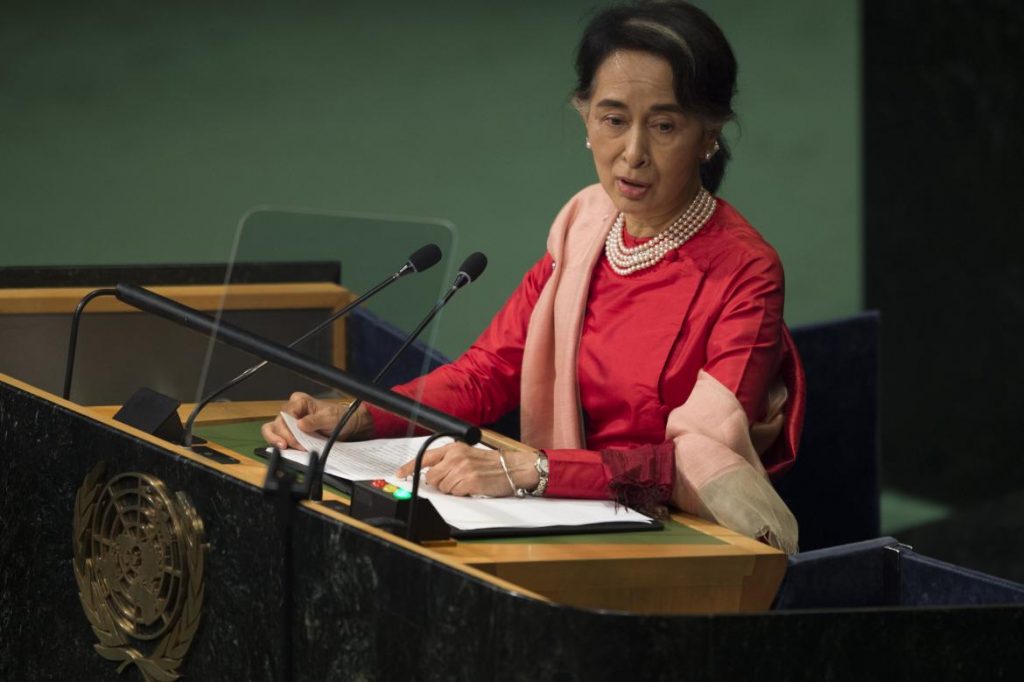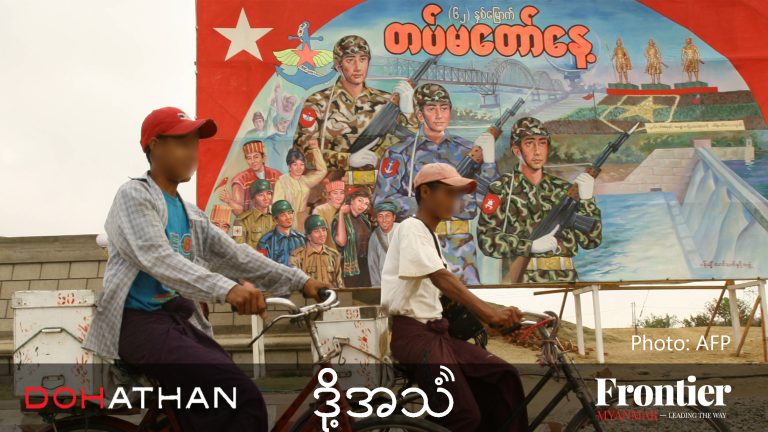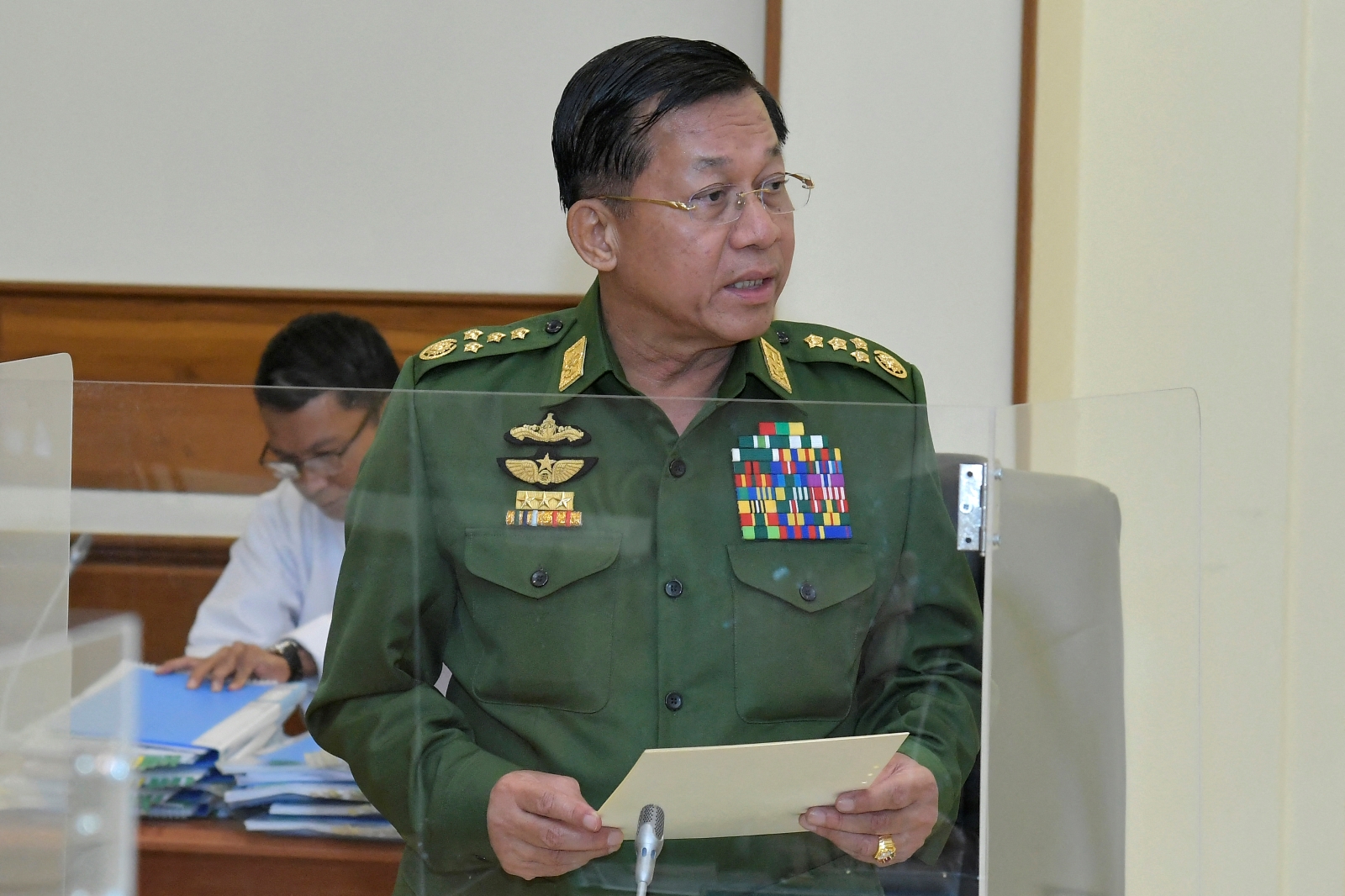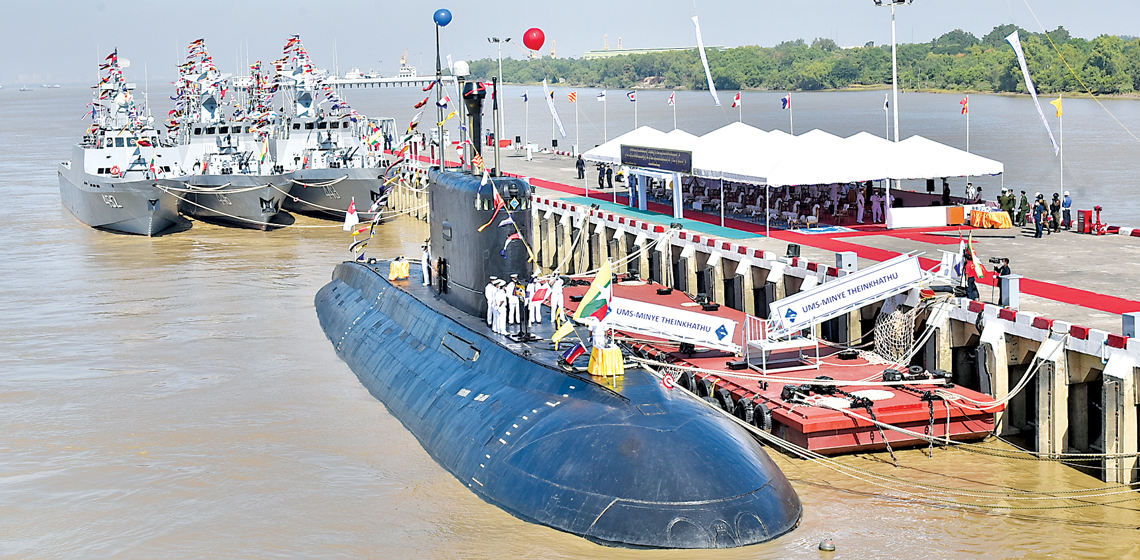Daw Aung San Suu Kyi is recognised nationally and internationally as the nation’s de-facto leader. It’s time for the Tatmadaw to support the repeal of section 59(f) of the constitution and allow her to become head of state.
THE LANDSLIDE victory by the National League for Democracy in elections nearly a year ago gave the party the numbers it needed to control the procedure for appointing the president.
There was much speculation then, especially in the international media, whether it might be possible for NLD leader Daw Aung San Suu Kyi to become president.
This was despite her being ineligible for the presidency under section 59(f) of the 2008 Constitution, which stipulates that the head of state cannot have a spouse or children who “owe allegiance to a foreign power” (two of her sons are British citizens).
Aung San Suu Kyi addressed the speculation at a news conference a few days ahead of the vote when she famously said that if the NLD won office she would be “above the president” in the new government.
“The constitution says nothing about being above the president,” a relaxed and smiling Aung San Suu Kyi told a throng of reporters.
Support more independent journalism like this. Sign up to be a Frontier member.
Since the change of government, she has attended an ASEAN Summit in Laos and travelled to Thailand, China, Britain and the United States in her capacity as State Counsellor and Minister for Foreign Affairs. On every trip has been treated as the nation’s de-facto leader.
This raises the question whether it is necessary for Aung San Suu Kyi to continue her campaign to amend the constitution so she can become president.
As a senior NLD member confirmed at the time, Aung San Suu Kyi pursued the possibility of becoming president in the aftermath of the election when she negotiated with Tatmadaw Commander-in-Chief Senior General Min Aung Hlaing for a temporary suspension of Section 59(f).
The negotiations were in vain and the clever solution devised by NLD legal experts was the creation of the state counsellor’s position. This post allows Aung San Suu Kyi to advise the executive and legislative branches of government, sidestepping the separation of powers enshrined in the constitution.
The bill creating the state counsellor’s position was the first legislation to be debated in the Union Parliament after the change of power.
It was approved on April 5 amid strong objections from some non-NLD lawmakers and members of the unelected military bloc, who said the bill breached the constitutional provisions on the separation of powers.
It is worth noting that the Tatmadaw subsequently chose not to refer the bill to the Constitutional Tribunal for a ruling on its validity.
As State Counsellor, Minister for Foreign Affairs and Minister for the President’s Office, Aung San Suu Kyi is undoubtedly the country’s de-facto leader.
One of the main reasons for creating the state counsellor’s position was to enable her to represent the country as its top leader in the international arena.
As Minister for the President’s Office she is able to give close direction to President U Htin Kyaw. As Minister for Foreign Affairs she has a seat on the powerful National Defence and Security Council, on which six of the 11-members are appointed by the military.
In recent months, Aung San Suu Kyi appears to have been trying to promote the presidency as a ceremonial role. For example, President Htin Kyaw attended but was not among the more than 70 speakers at the Panglong 21st Century Union Peace Conference.
Meanwhile, in addition to Aung San Suu Kyi, the speakers of the Union Parliament, leaders of political parties and ethnic armed groups, and the Tatmadaw commander-in-chief all gave addresses.
Although appointment to the state counsellor’s position has enabled Aung San Suu Kyi to evade constitutional provisions that would otherwise restrict her role as de-facto leader, it has exposed her to some criticism.
A leader of the Arakan National Party contended that as state counsellor she did not have the authority to appoint the Rakhine State Advisory Commission headed by former United Nations secretary-general Mr Kofi Annan.
On the same issue, a military MP argued that as the State Counsellor was accountable to the Union Parliament, she should have received its approval before announcing the commission’s appointment.
The Tatmadaw believed that the enactment of the state counsellor bill was not in accord with the constitution in several ways.
Aung San Suu Kyi needs to assume the presidency to ensure the smooth, long-term management of the country. In the interests of national reconciliation, Aung San Suu Kyi asked the United States to lift all remaining economic sanctions on Myanmar and it agreed.
Min Aung Hlaing and other senior current and former Tatmadaw leaders need to demonstrate the Tatmadaw’s commitment to national reconciliation by supporting the repeal of section 59(f) and allowing Aung San Suu Kyi to become the head of state.







